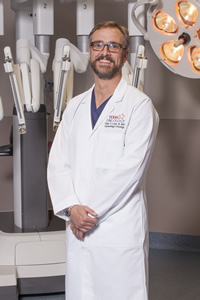 You may know that cervical cancer is a slow developing form of cancer in the cervical tissue, but did you know that specific types of human papillomavirus (HPV) that are transmitted through sexual contact are the cause of almost all cervical cancers?
You may know that cervical cancer is a slow developing form of cancer in the cervical tissue, but did you know that specific types of human papillomavirus (HPV) that are transmitted through sexual contact are the cause of almost all cervical cancers?
HPV is more common than people may think, with approximately 80 percent of men and women who are sexually active being infected with HPV at some point in their lives. However, most people never know they have the virus. HPV is unique in that the immune system of the majority of people who develop the virus clear it from the system without treatment or lingering problems, and ultimately will test negative for the virus.
Can HPV vaccines reduce the risk of getting cervical cancer?
Yes, you can help lower your risk of cervical cancer by getting the HPV vaccine at an early age. The HPV vaccine is recommended for children ages 11 to 12, though it can be given as early as age 9. Additionally, the vaccine is recommended for women and men up to age 45.
How do I know if I have HPV or cervical cancer?
Screening for cervical cancer is crucial for women. The 5-year survival rate for cervical cancer when detected early can be greater than 90%. However, if cervical cancer has spread to other organs, the 5-year survival rate drops to 17%, so screening for cervical cancer is crucial for women.
The Pap test (or Pap smear) is the primary screening test for cervical cancer. This test is different from a pelvic exam, which includes an examination of a woman’s reproductive organs, including the uterus and the ovaries. Read more about pelvic exams. A Pap test is a procedure used to collect cells from the cervix for examination under a microscope to find cancerous cells, pre-cancerous cells that could develop into cancer if left untreated, or other abnormalities such as inflammation and infection. Read more information on how a Pap test is conducted.
HPV tests take a sample of cells and look specifically for the HPV virus. HPV tests may be used for follow-up testing of women who have abnormal Pap test results and also for cervical cancer screening in combination with a Pap test for women over age 30.
“With approximately 70% of all cervical cancer linked to specific strains of HPV, understanding risk factors and the importance of screening plays a crucial role in the fight against the disease,“ said Paul Loar, MD, Gynecologic Oncologist at Sarah Cannon Cancer Institute at St. David's HealthCare. "When cervical cancer is diagnosed at any early stage, treatment options can be highly effective for women."
Sarah Cannon screening recommendations:
- Women age 21-29: Pap test every three years
- Women age 30-65: Pap test and HPV test every five years
- Women age 65+: Women with normal history should stop testing.*
*Women with an abnormal diagnosis should be tested for 20 years following the result, even if testing continues past age 65. A woman whose uterus and cervix have been removed for non-cervical cancer reasons, and who has no history of cervical or pre-cervical cancer, should not be tested.
More information addressing common questions about cervical cancer and HPV can be found in What to Know About Cervical Cancer. If you have questions about cervical cancer, call askSARAH at (844) 482-4812 or visit askSARAH online.
It is important to know that the information in this post, including Sarah Cannon’s recommendations for screening, is accurate as of the publishing date.